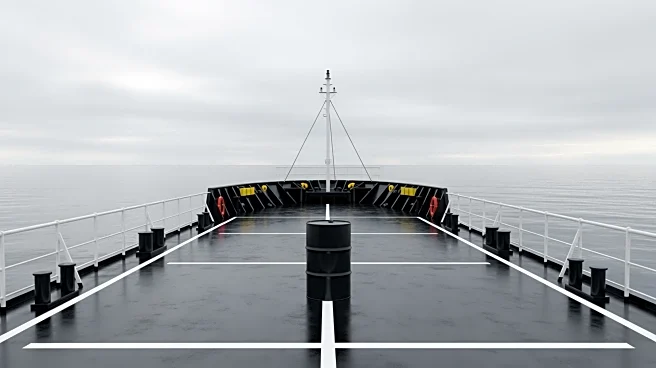What's Happening?
As part of the ceasefire agreement between Israel and Hamas, nearly 2000 Palestinian prisoners and detainees held in Israeli prisons were released into Gaza and the occupied West Bank. Concurrently, all
20 surviving Israeli hostages were freed by Hamas after spending over two years in captivity in Gaza. The exchange marks the first phase of the ceasefire deal, which aims to reduce tensions and foster peace between the two sides. The release of prisoners and hostages has elicited varied reactions from both Gaza and Tel Aviv, reflecting the complex emotions and political implications of the exchange.
Why It's Important?
The exchange is a significant step in the ongoing efforts to stabilize relations between Israel and Gaza, potentially paving the way for further diplomatic negotiations and peace initiatives. The release of a large number of Palestinian prisoners could impact the political landscape in Gaza and the West Bank, influencing public sentiment and the power dynamics within Palestinian leadership. For Israel, the return of hostages is a relief for families and a political victory, although it also raises questions about the terms of the agreement and future security measures. The international community is closely monitoring the situation, as the ceasefire and exchange could set a precedent for conflict resolution in the region.
What's Next?
The next phases of the ceasefire deal may involve further negotiations on long-term peace agreements and the reconstruction of Gaza. Both sides are likely to face internal and external pressures to maintain the ceasefire and address unresolved issues, such as the return of remaining bodies and the lifting of restrictions on Gaza. The international community, including key stakeholders like the United States, Egypt, and Qatar, may continue to play a role in facilitating dialogue and ensuring compliance with the agreement. The reactions from Gaza and Tel Aviv suggest that while the exchange is a positive development, underlying tensions and grievances remain, requiring ongoing diplomatic efforts.
Beyond the Headlines
The exchange highlights the ethical and humanitarian dimensions of hostage and prisoner negotiations, including the challenges of balancing political objectives with human rights considerations. The release of prisoners and hostages may influence cultural perceptions of justice and reconciliation, potentially affecting future peace-building efforts. The situation also underscores the importance of international cooperation and the role of third-party mediators in conflict resolution, as well as the need for transparent and accountable processes in negotiating and implementing agreements.









